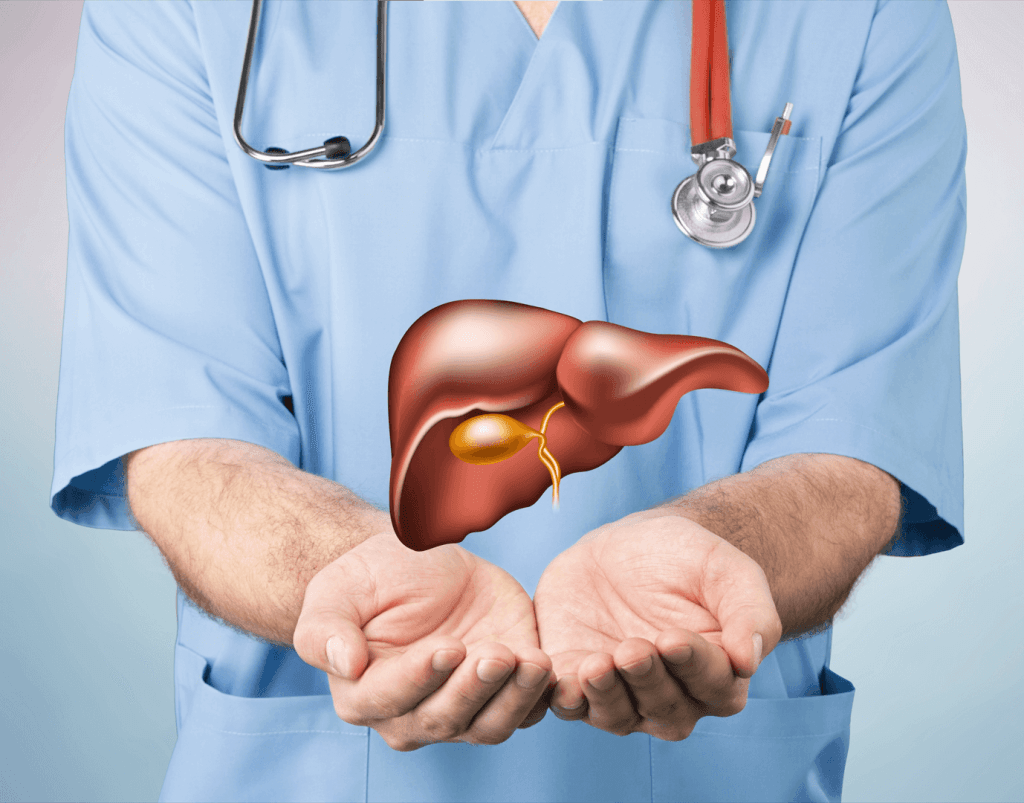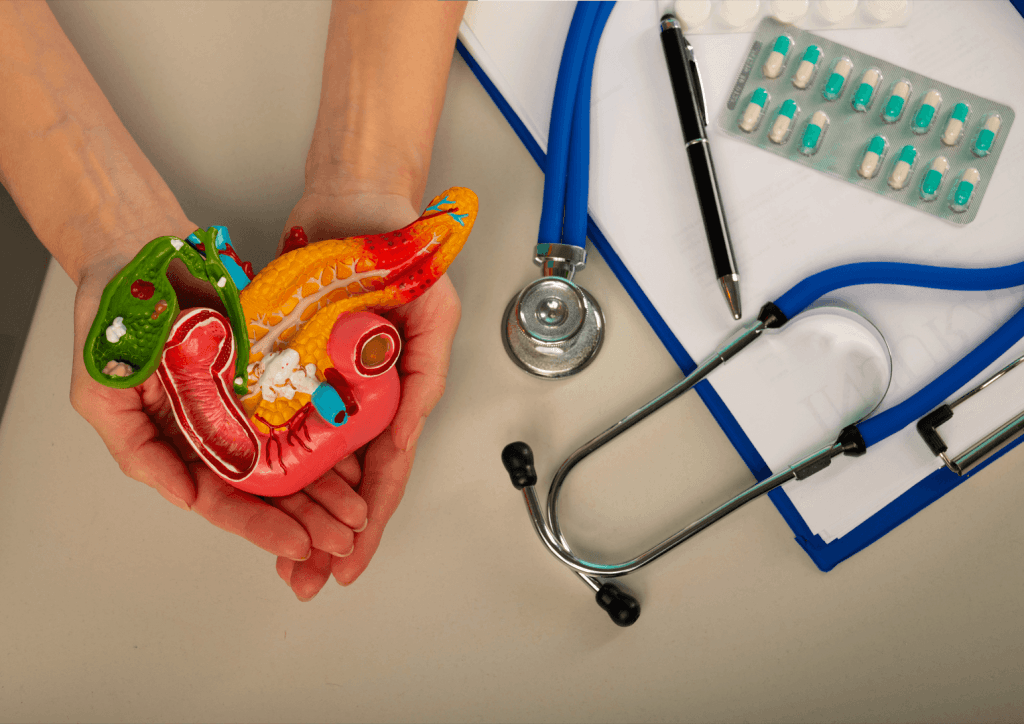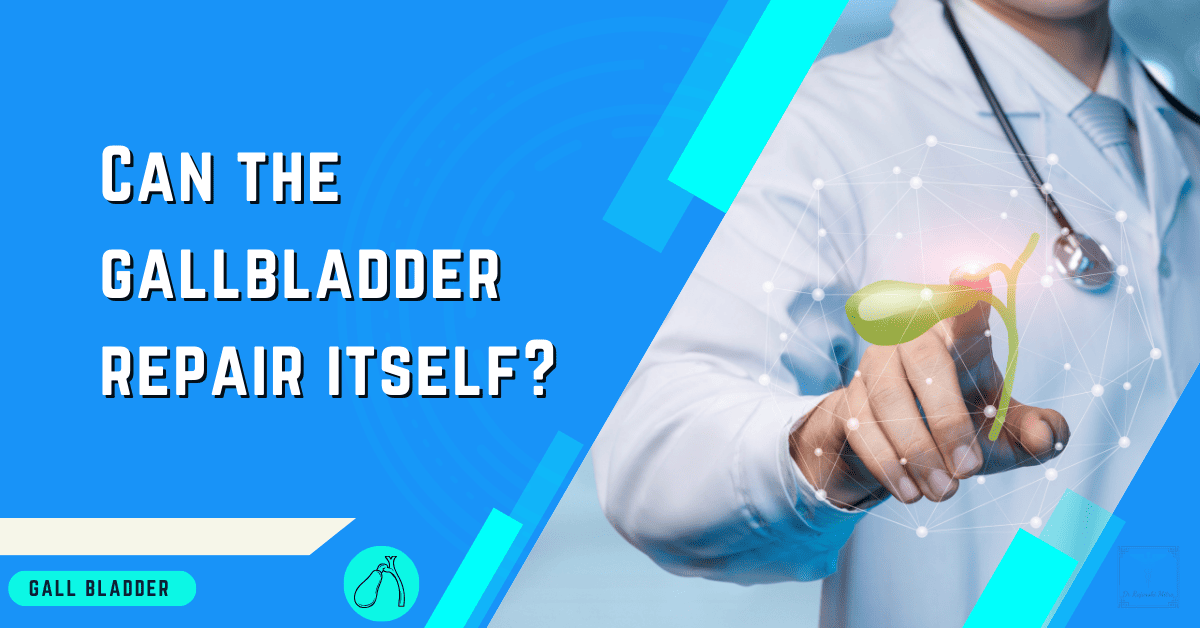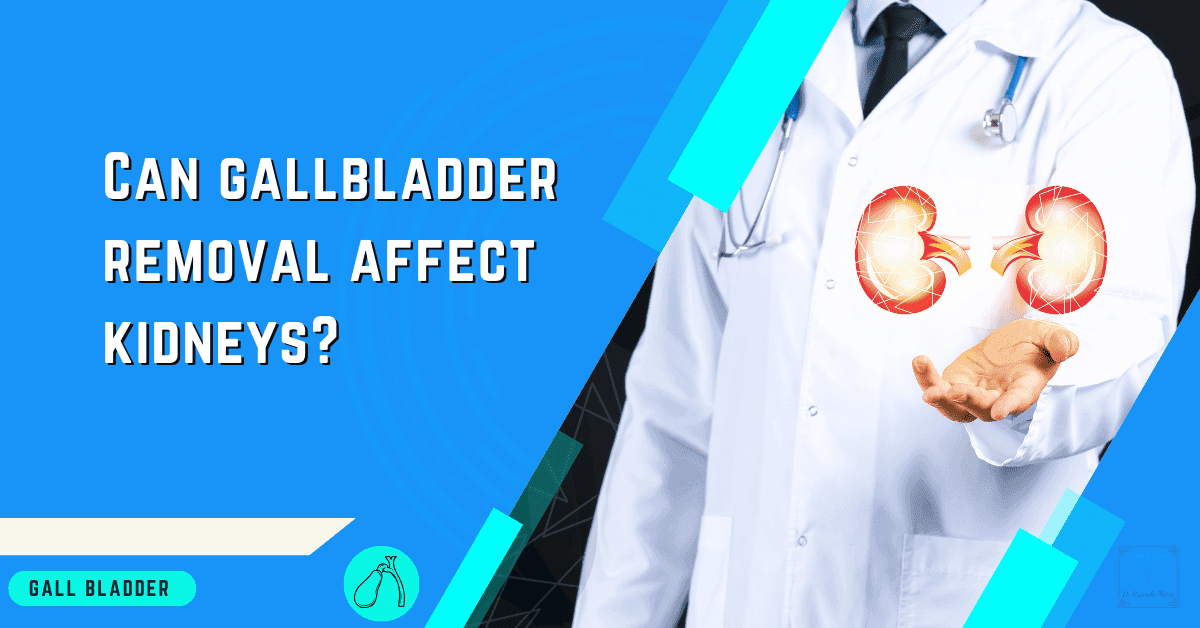Addressing the query, “What is the fastest way to cure gallstones?” necessitates an exploration of both the nature of gallstones and the available medical interventions.
Gallstones are hard deposits that form in the gallbladder, and their treatment often hinges on size, composition, and the presence or absence of symptoms. Gallstones are extremely common, with roughly 20 million Americans currently living with them.
As your surgeon, patients often inquire if there are any fast ways to potentially eliminate their gallstones without surgery. I will examine some of the most rapid treatment options currently available, while assessing their evidence, safety and effectiveness.
While some treatments offer rapid relief, the most appropriate method should be determined based on individual circumstances.
4 Fastest Ways To Cure Gallstones
- Medications: Non-surgical dissolution of gallstones over an extended period.
- Laparoscopic Cholecystectomy: Quick and effective gallbladder removal.
- ERCP: Directly addresses and removes bile duct obstructions.
- ESWL: Uses sound waves to break gallstones for natural passage.
The Process of Curing Gallstones

Understanding Gallstones
Formation and Composition: Gallstones are crystalline structures that arise due to an imbalance in the substances that constitute bile.
They can be cholesterol stones, which are yellow-green and primarily made of hardened cholesterol, or pigment stones, which are dark and composed of bilirubin.
Symptomatic vs. Asymptomatic Gallstones
Determining the Need for Speed: Not all gallstones produce symptoms. Asymptomatic stones might not require immediate intervention, whereas symptomatic gallstones, causing pain or other complications, often need swift attention.
Preventative and Natural Approaches
Mitigating Formation: While not a direct “cure,” a balanced diet, maintaining a healthy weight, and avoiding rapid weight loss can prevent the formation of gallstones. Some also advocate for natural remedies, though their efficacy is not universally recognized.
4 Fastest Ways To Cure Gallbladder Stones

Non-Surgical Methods: Medications
Gallstone Dissolution: For individuals who prefer non-surgical methods or are not good candidates for surgery, medications like ursodeoxycholic acid can be prescribed. These drugs can dissolve cholesterol gallstones.
However, they might take months or even years to be fully effective, making them not the “fastest” method but a viable alternative.
Laparoscopic Cholecystectomy: A Minimally Invasive Approach
Speed and Efficacy Combined: For many, the fastest and most effective way to address gallstones is through a laparoscopic cholecystectomy. This minimally invasive procedure allows for quicker recovery times and less postoperative pain compared to traditional surgery. However, maintaining gallbladder health is equally important, and incorporating the best fruits for gallbladder health, such as apples, grapes, and avocados, can play a significant role in prevention. These fruits are high in fiber and antioxidants, promoting overall digestive health and potentially reducing the risk of gallstone formation.
This procedure involves the surgical removal of the gallbladder using small incisions. Most individuals can return home the same or the next day and resume regular activities within a week.
ERCP (Endoscopic Retrograde Cholangiopancreatography) and Gallstone Removal
Addressing Duct Obstructions: If a gallstone is lodged in a bile duct, an ERCP can be used to locate and remove the stone.
This procedure is particularly valuable when preventing or treating gallstone-induced pancreatitis.
Sound Wave Therapy: Extracorporeal Shock Wave Lithotripsy (ESWL)
Breaking Down the Stone: ESWL uses shock waves to break gallstones into smaller pieces, making it easier for them to pass naturally.
This method is less common and is typically reserved for stones that cannot be treated with other methods.
Final Note From Dr. Rajarshi Mitra
While several methods can address gallstones, the fastest approach often involves surgical intervention. However, individual circumstances, overall health, and the specific nature of the gallstones determine the best course of action.
Always consult with a healthcare professional to ascertain the most appropriate treatment.



















